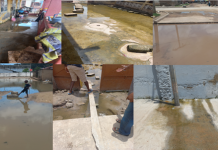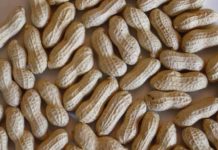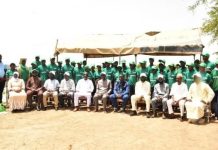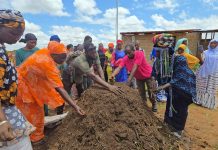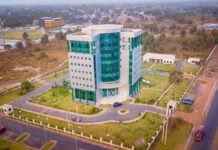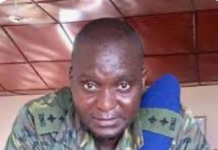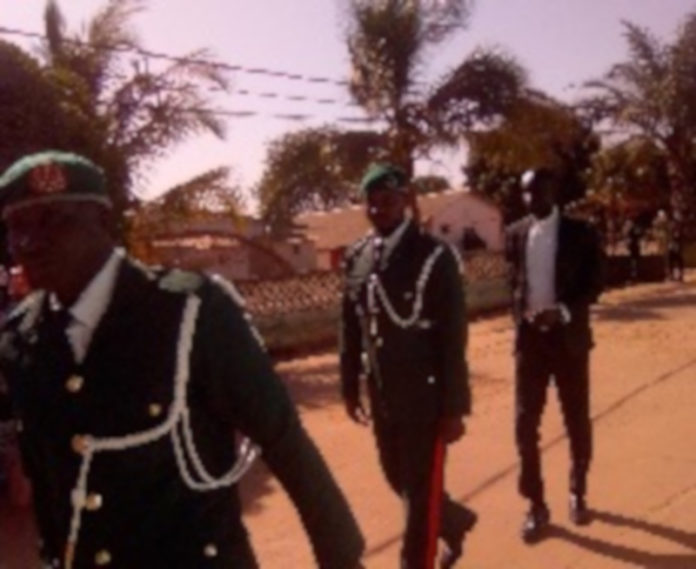By Kebba Secka
Abubacarr Jallow an employee of Africell on Monday January 21st 2019, told the General Court-Martial held at the Yundum Military Barracks that he was assigned by his Company’s Human Resource Manager (HRM), to print out the WhatsApp conversations of the accused persons using a software called ‘Ibackup’, to view the content of the chat group of the accused soldiers. Jallow made the disclosure while testifying as the seventh prosecution witness in the criminal charges against two members of the Gambia Armed Forces.
The case was called before a panel of senior military officers guided by Justice Alami. State Counsel AN Yusuf together with Lt. Y. Jallow, announced their appearance for the state, while the accused persons were represented by Counsel O. Suso together with Major Bassirou Sarr, Major Mustapha Badjie and Major Yusupha Jammeh.
After usual presentation before the Court Martial, AN Yusuf applied to have Jallow’s testimony in camera. He argued that the testimony of the Africell employee will affect the willingness of future request in case of similar circumstances; that Jallows testimony in an open Court is not in the interest of the public. He further stressed that similar application was made in the trial involving twelve accused soldiers in connection with the matter under trial. The application was accepted and the witness’ testimony was held in camera.
Objecting to the application made by the prosecution, O. Suso argued that the reasons given by the prosecution does not compel the necessity of how a witness’ testimony should be held in camera. “The witness is an employee of Africell who does not serve any of our secret security agencies. This is a public hearing and having the witness’ testimony in camera, must be something compelling,” he stated. He concluded by urging the Court-Martial to disallow the application of the prosecution and allow the witness’ testify in public. In countering the objection made by the defense lawyer, AN Yusuf said his application was based on Section 24 of the Constitution which provides exception of cases of public hearing and fair trial.
The panel led by Judge Advocate Zainab Alami, ruled that there was not enough substantial reason advanced by the prosecution, as to the witness’ testimony in camera. Judge Advocate Alami disallowed the application and held that the witness can give testimony in public. The witness was then ordered to appear and give evidence in public.
“Can you tell the Court, the nature of your job?” asked Yusuf.
“I produce reports and print out of documents,” answered Jallow. When asked whether he recognized any of the witnesses, Jallow answered in the negative but recalled when the Public Utility and Regulatory Authority (PURA), requested Africell to print out some documents for the security services. Counsel AN Yusuf requested that the witness be given an exhibit he printed for identification, which he did and confirmed them as the ones he printed out from an iPhone belonging to one Aba Badjie.
During cross-examination, defense Counsel Suso asked the witness whether he could recall the date he carried out the assignment on the iPhone and the witness answered that it happened last year.
“On whose instructions were you acting on at the time of doing the work?” O. Suso asked.
The witness replied: “I was acting under the directives of the HRM of Africell.” The witness earlier in his testimony said he was given Aba Bdjie’s phone by one Yusupha, but defense Counsel Suso put it to him that if such was the case, he did not comply with official procedure. But Jallow maintained that Yusupha gave him the iPhone in the presence of the HRM of Africell. “Would you agree with me that the iPhone should have been from the HRM?” Defense Counsel Suso asked. “Yes,” the witness replied. Asked by Defense Counsel Suso whether as an employee of Africell, it was part of his job description to download people’s private WhatsApp conversations, and the witness said it was in his job description to print out and that is what he did in relation to the case before the Court Martial.
The matter was then adjourned to the 21st of January for the last witnesses to be called.
It could be recalled that the two soldiers who were arrested upon arrival from peace keeping mission in Darfur were charged with mutiny, endeavour to persuade members of the Gambia Armed Forces to take part in mutiny and others.
